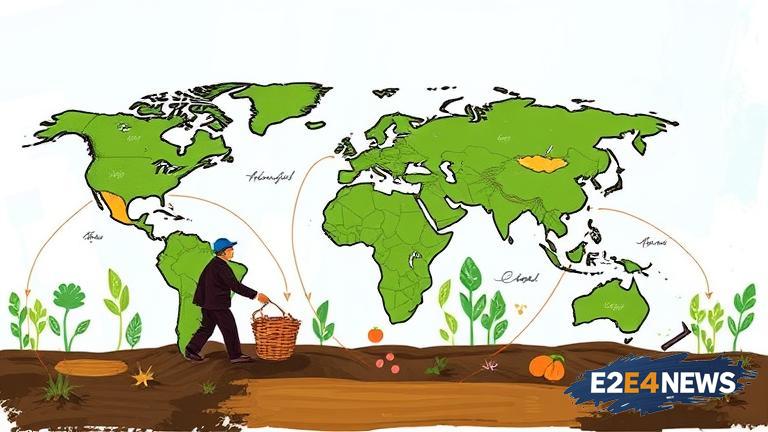The United Nations Food Systems Summit (UNFSS) brought together global leaders to accelerate progress towards the Sustainable Development Goals (SDGs), particularly SDG 2: Zero Hunger. Since the summit, governments have been working to implement the agreed-upon actions, with many countries making significant strides. The progress reflects a growing recognition of the need for sustainable food systems that prioritize nutrition, equity, and environmental sustainability. In recent months, several countries have launched initiatives to improve food security, reduce hunger, and promote sustainable agriculture. For example, the government of Rwanda has implemented a national strategy to improve nutrition, while the government of Brazil has launched a program to support small-scale farmers. Similarly, the government of India has initiated a mission to double farmers’ incomes, and the government of China has implemented policies to reduce food waste. These efforts demonstrate a commitment to transforming food systems and achieving the SDGs. Furthermore, international organizations such as the Food and Agriculture Organization (FAO) of the United Nations and the World Food Programme (WFP) are providing critical support to countries, helping them to build capacity and implement sustainable food systems. The private sector is also playing a crucial role, with companies investing in sustainable agriculture and reducing their environmental footprint. Civil society organizations are also actively engaged, advocating for policy changes and promoting community-led initiatives. Despite the progress, there is still much work to be done, and governments must continue to prioritize sustainable food systems. The UNFSS has provided a critical catalyst for action, and it is essential that momentum is maintained. The summit’s emphasis on multi-stakeholder engagement has helped to foster collaboration and coordination among governments, international organizations, the private sector, and civil society. This collaborative approach is essential for achieving the SDGs and ensuring that food systems are transformed to prioritize nutrition, equity, and environmental sustainability. As the world continues to grapple with the challenges of hunger, malnutrition, and environmental degradation, the progress made towards the UNFSS goals is a testament to the power of global cooperation and collective action. The next steps will be critical, as governments and other stakeholders work to implement the agreed-upon actions and maintain momentum. The UNFSS has provided a roadmap for action, and it is now up to governments and other stakeholders to ensure that the commitments made are translated into tangible results. The future of food systems depends on it, and the world is watching as governments and other stakeholders work to create a more sustainable, equitable, and nutritious food system for all. In conclusion, the progress made towards the UNFSS goals is a significant step forward, but there is still much work to be done. Governments, international organizations, the private sector, and civil society must continue to work together to prioritize sustainable food systems and achieve the SDGs. The world is at a critical juncture, and the actions taken now will determine the future of food systems and the health and well-being of generations to come.
